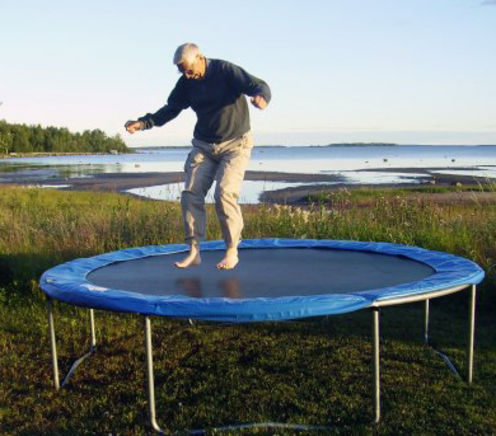
Older people may be able to learn more from visual information than their younger counterparts, according to a study published today in the journal Current Biology.
“The take-home message the study authors gave was that older people are good at learning,” said Professor Henry Brodaty, Co-Director of the Centre for Healthy Brain Ageing (CHeBA) at UNSW. “They have the same plasticity, but they’re not as good at filtering out other information.”
The brain needs to be able to easily learn new information (plasticity), and filter out irrelevant information (stability). The experiment was designed to test whether ageing affects the brain’s plasticity, stability, or both.
The researchers had ten 67 to 79-year-olds and ten 19 to 30-year-olds view screens displaying six letters interspersed with two numbers. Each screen also had moving dots in the background, and the participants were asked to report just the numbers.
They found younger people had strong plasticity and stability, meaning only important information – the numbers – was learnt. The older participants, on the other hand, learnt the numbers but also picked up on the movement of the background dots.
This decrease in stability among the older group means irrelevant information was not being filtered out.
Professor Watanabe told Current Biology that because the brain’s capacity to learn was limited, there was “always the risk that information already stored in the brain may be replaced with new and less-important information.”
However, Professor Brodaty said the verdict on how the brain stores information was still out.
“There’s debate whether you’ve got a limited filing cabinet, and if you get too much in there you’ve got no room for anything else,” he said. “Many neuropsychologists don’t think there’s a limit, or if there is, we’re nowhere near reaching it.”
Professor Anthony Hannan from the Florey Institute of Neuroscience and Mental Health at the University of Melbourne, said the paper did not discuss the implications of the generational difference in the two age groups.
“One of the most obvious differences between these two groups other than their age is that the younger group would have grown up with screens: playing video games, watching television, using the internet – essentially having perceptual training through their digital environment,” he said.
Whether the older brains naturally decreased in stability, or if filtering visual information was a skill that had not been honed by the study participants is unclear.
“As there were only ten subjects per group, they may not have been entirely representative of their age groups, due to variable genetic and environmental factors,” Professor Hannan added. “There is evidence, for instance, that people who stay more mentally stimulated and physically active can delay onset of cognitive decline.”
Either way, it seems that older people’s ability to learn important visual information is comparable to their younger, screen-savvy counterparts.
